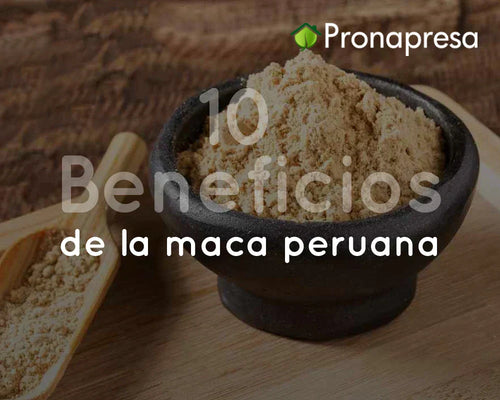
Healthy Eating:
Diet plays an important role in controlling blood glucose levels. Choosing healthy, balanced foods can help stabilize blood sugar levels and improve insulin sensitivity. Here are some important dietary tips:
a) Carbohydrate Control: Limiting your intake of refined and processed carbohydrates, such as white bread, white rice, and sugary foods, can help prevent blood glucose spikes. Instead, opt for complex carbohydrates, such as whole grains, vegetables, and legumes, which are digested more slowly and have a lower impact on blood sugar levels.
b) Increase Fiber: Eating fiber-rich foods, such as fruits, vegetables, nuts, and seeds, can help control blood glucose levels by slowing the absorption of sugar into the bloodstream. Fiber also promotes satiety and can help with weight control, which is beneficial for overall metabolic health.
c) Lean Proteins: Including lean protein sources in every meal can help stabilize blood glucose levels and prevent blood sugar spikes. Healthy options include skinless chicken, fish, tofu, egg whites, and legumes.
d) Healthy Fats: Healthy fats, such as those found in avocado, nuts, seeds, and olive oil, can help improve insulin sensitivity and reduce inflammation, which contributes to better blood glucose control.
e) Portion Control: Maintaining a proper balance between different food groups and controlling portions can be key to controlling blood glucose levels. Opt for small, frequent meals instead of large ones to avoid blood sugar spikes.
Regular Exercise:
Regular exercise is a powerful tool for managing blood glucose levels. Physical activity helps the body's cells use glucose as fuel, which helps lower blood sugar levels. Here are some ways exercise can help:
a) Improved Insulin Sensitivity: Regular exercise can increase insulin sensitivity, allowing the body's cells to use glucose more efficiently and helping to maintain stable blood sugar levels.
b) Blood Sugar Reduction: Exercise helps reduce blood glucose levels both during and after physical activity. This can be especially beneficial for people with type 2 diabetes who struggle to control their blood sugar levels.
c) Weight Control: Regular exercise can help control body weight, which in turn can improve blood glucose control. Excess weight can make diabetes difficult to control and increase the risk of related complications.
d) Type and Duration of Exercise: It is recommended to combine resistance exercises, such as weight lifting, with aerobic exercises, such as walking, running, or swimming. The American Diabetes Association recommends at least 150 minutes of moderate aerobic activity per week, along with muscle-strengthening exercises twice a week.
Stress Management:
Chronic stress can negatively affect blood glucose levels by increasing the production of stress hormones, such as cortisol, which can cause blood sugar levels to rise. Learning to manage stress effectively can be beneficial for controlling blood glucose. Here are some strategies to reduce stress:
a) Relaxation Practices: Meditation, deep breathing, yoga, and mindfulness are effective techniques for reducing stress and promoting relaxation. Incorporating these practices into your daily routine can help keep blood glucose levels under control.
b) Regular Exercise: Exercise is not only beneficial for blood glucose control, but it can also help reduce stress and improve mood. Including regular physical activity in your daily routine can be an effective way to combat stress.
c) Social Support: Maintaining strong social connections and seeking emotional support can help reduce stress and improve emotional well-being. Talking with friends, family, or a therapist can be helpful in managing stress effectively.
d) Rest Time: Prioritizing rest and downtime is important for reducing stress and promoting relaxation. Make sure to set aside time for activities you enjoy and that help you recharge.
Natural Supplements:
Some natural supplements can help improve blood glucose control and insulin sensitivity. It's important to talk to a healthcare professional before starting any supplement to ensure it's safe and appropriate for you. Some supplements that may be helpful include:
a) Cinnamon: Cinnamon has been shown to help improve insulin sensitivity and reduce blood glucose levels in people with type 2 diabetes. Adding cinnamon to the diet in powder or capsule form may be beneficial.
b) Chromium: Chromium is a mineral that plays an important role in carbohydrate metabolism and blood glucose regulation. Taking chromium supplements can help improve insulin sensitivity and reduce blood sugar levels.
c) Alpha Lipoic Acid: This natural antioxidant can help improve insulin sensitivity and reduce blood glucose levels. It's found in foods like spinach, broccoli, and brewer's yeast, and is also available in supplement form.
d) Magnesium: Magnesium is an important mineral that plays a role in regulating blood glucose and insulin sensitivity. Ensuring you get enough magnesium in your diet or taking supplements can be beneficial for managing blood sugar levels.
[product=v-glucalose-vital-health]
Supports the body to regulate blood glucose
[/product]
Regular Monitoring:
Regular monitoring of blood glucose levels is critical for managing diabetes and adjusting treatment as needed. For people trying to control their glucose without medication, frequent monitoring can provide valuable information about how certain foods, exercises, and stress management strategies affect blood sugar levels. Home blood glucose meters can be used to perform periodic testing and keep track of results.























































